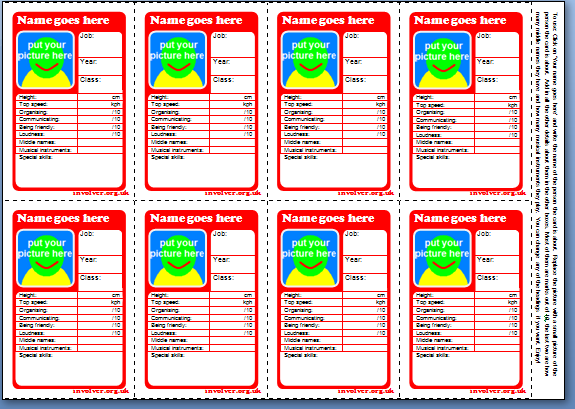This detailed template will help you ask all the questions you need to when planning a project.
Write the answers on to the sheet as use it as your guide throughout your project.
If you try to run a project without sitting down to plan it first, you’re setting yourself up to fail.
Spend 20 minutes with your team going through this and you’re getting yourself off to a great start.
Created by Asher Jacobsberg at School Councils UK.
Print or download (‘save’) this resource using the ‘More’ button. Detailed School Council Action Planning Form
School Councils UK Training Please feel free to reproduce this resource with acknowledgement (non-commercial use only). © School Councils UK 2007. MAKING A DIFFERENCE – these sheets will help you plan your project. Don’t lose them! Action Notes Example Write your answers here 1. GETTING STARTED Names of Group Members and date of meeting So you remember who you are working with! Names: Date: The title of your project Reduce, reuse, recycle Name of issue Who does this issue affect? All the people who are affected directly (or indirectly) Pupils, teachers, teaching assistants, admin staff (the whole world) What is our main goal, and why is it important? This is your goal so everyone knows what you are working for We want to reduce the amount of paper that gets thrown away in class by 50% School Councils UK, 3 Floor 108-110 Camden High Street, London NW1 0LU Tel 0845 456 9428 Fax 0845 456 9429 Email info@schoolcouncils.org www.schoolcouncils.org rd �School Councils UK Training Please feel free to reproduce this resource with acknowledgement (non-commercial use only). © School Councils UK 2007. Action Notes Example Write your answers here 2. GETTING INFORMED What do you already know about this issue? What information and help do we need? What do you still need to know? This could be factual information or peoples opinions. It could also be funding, or equipment. Who do you need to talk to? What method will you use for finding information? There are lots of How will we get it? different methods. We know roughly how much paper is thrown away in our own classes, but we need to find out exactly how much is thrown away across the school. We need to find out if we can get money for recycling bins. Ask the caretaker if we can weigh the waste paper at the end of each day all of next week. Talk to the bursar and the council about money. Research on the internet how much could be saved by reducing paper use and how much extra bins, etc. would cost. School Councils UK, 3 Floor 108-110 Camden High Street, London NW1 0LU Tel 0845 456 9428 Fax 0845 456 9429 Email info@schoolcouncils.org www.schoolcouncils.org rd �School Councils UK Training Please feel free to reproduce this resource with acknowledgement (non-commercial use only). © School Councils UK 2007. Action Notes Example Write your answers here 3. GETTING ORGANISED These are all the things you need to get done to achieve your goal. What needs to happen? • • • • • Any details which will explain how these tasks will get done. These are the action points. If the action points need money, you should include it in this section. • • • • • Research into current use and what we could do instead Agree a plan with the school Get new equipment, write guidance Publicise what is going on and why Get staff and students to follow guidance Weigh current waste Research alternatives Arrange meetings with caretaker and bursar Write guidance Produce posters Action Name (initials) Date How will we get it done? Who will do it? When should it be done by? When are we next meeting? Make sure you have names by all the action points. There could be more than one name for each task. Put a date by each action point so you know when it should be completed. This is important, so you know when you are meeting back together to see how it’s going. You might need to change some of the action points or timeline if new issues arise. School Councils UK, 3 Floor 108-110 Camden High Street, London NW1 0LU Tel 0845 456 9428 Fax 0845 456 9429 Email info@schoolcouncils.org www.schoolcouncils.org rd �


